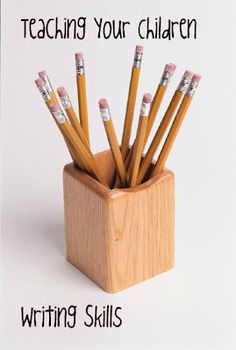Has your child’s teacher said, “He just doesn’t want to write’”?
Does your teenager suffer from a sore hand after writing at school?
Has your uni student asked for Nurofen to help her complete a written exam?
Does your child have poor handwriting?
If you answered yes to any of these, please read on!

Why has the simple act of writing become such a chore for school kids these days? It is by far the biggest ‘gripe’ area that we have to deal with. “Aw, not writing, I hate writing, it sucks!” Or words to that effect! According to recent research one in three children struggles with handwriting. If this is true it has serious implications for their educational achievement.
It is tempting to view this as a sign of laziness or apathy, but be honest, when was the last time you wrote a letter? I mean a real letter, with a folded sheet of paper placed in an envelope with a stamp? No, I can’t remember either, and yet most of us ‘oldies’ grew up in a time when letters still had meaning!
The truth is that all generations are now affected by our increasing reliance on computers, tablets and smartphones. We don’t need to write, so we don’t. It is that simple, and like any learned skill, if writing isn’t practised, the quality drops and the speed slows. The effect of this is bad enough for the over 35s, who spent their pre-technology school days working with paper and pen, but for the younger generation it is as if this once-essential skill had never existed.
This is hardly surprising as children are growing up in a world of tablets, phablets and smartphones; cursive writing is such a bore when you can ‘stroke’ or tap a screen and get the same results. Even the humble credit card has abandoned writing, with signatures now banned and pin codes the new security preference.
There is also a generation of young teachers entering the profession who have a natural preference for technology. The circle is complete. iPads and laptops have replaced textbooks, homework is online and handwritten work is viewed as inefficient and time consuming.
We must remember that handwriting is not innate, like seeing or talking, it is a learned skill that must be practised. With limited hours, huge administration demands and increased performance pressures, can we really blame teachers if they rely more on technology? Imagine the quick, systemised marking that can be achieved!
So, is writing a dying art? Is it doomed to tread the same path as Latin and become a quaint antiquity practised by the few? I sincerely hope not, because writing is more than simply communicating. Writing is a slower, more thoughtful process than typing. It involves planning, attention to detail and commitment to task. It is a complex skill that affects cognitive development and exercises visual, motor and memory circuits. When we write we develop our hand-eye coordination and fine motor skills. According to the Wall St Journal, studies have shown that handwriting engages parts of the brain that typing doesn’t.
The ability to write and the quality of the text are inextricably linked. Professor Rhona Stainthrop, researching children’s writing abilities, says that there is growing evidence that those who write faster and more legibly get better grades. We see it in the centre all the time; good answers lost in the midst of poor handwriting and slow writers who have not automated their writing skills adequately, so much so that thinking about their writing is getting in the way of developing their thoughts on paper.
This leaves you, as parents, with a tough task. Most of your kids are fighting against writing. Oh, there are still a few for whom writing is a natural part of the learning process, but for most it is an ‘old’ skill that doesn’t seem to fit in to their high-tech world. And yet, in the ‘real’, working, world, writing is still very much in evidence. Meeting notes, supply lists, a quick reminder to a colleague, even the famed ‘napkin’ planning session, all come alive through writing. Even now there is no substitute for pen or pencil on paper; it’s a quick and effective low-tech way of communicating.
Which makes it all the more important that you encourage your kids to write at every opportunity. In the centre we use different approaches to encourage writing. For instance, we allow kids to illustrate their writing, so drawing becomes the reward for writing. We also choose engaging writing topics, like the Minecraft contest we have running at the moment; kids who never write are suddenly producing pages of text!
The next time your kids want something, for instance a ticket to the Royal Show, ask them to put it in writing. Encourage them to explain in words why they need or deserve to have their prize. If it isn’t convincing enough, work with them to edit their writing so that it achieves its objective. A bit of coaxing and extra work now will pay dividends later on when your kids are able to achieve at university or work because writing is a practised skill that enables them to communicate effectively.